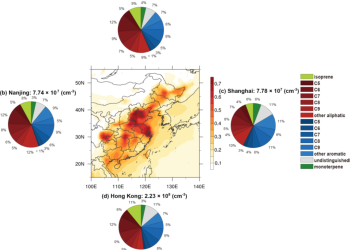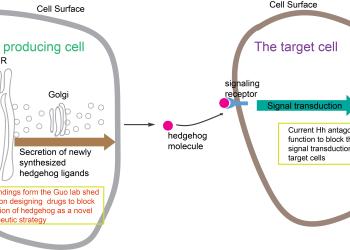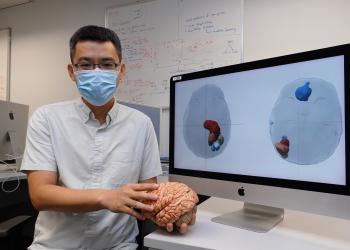News & Stories
2022

News
Joint research revealed the importance of anthropogenic vapors on haze pollution over Hong Kong and Mainland China's megacities
Prof. WANG Zhe, Assistant Professor at the Hong Kong University of Science and Technology (HKUST)’s Division of Environment and Sustainability, has collaborated with international scientists and revealed the significant roles of anthropogenic low-volatility organic vapors on the secondary organic aerosols (SOA) formation in four megacities in China, providing new insights for effectively mitigating the urban air pollution issues.
News
HKUST Develops New Multifunctional Hydrogel for Odor and Microbial Control in Hong Kong’s Drainage and Flushing Systems
Researchers at The Hong Kong University of Science and Technology (HKUST) have new technology to treat odors and germs in drainage and flush water. The MalOdor-Control (MOC) hydrogel is proven effective in treating odor problems at drainage locations, including manholes, nullah, intercepts, water channels, and rivers in Hong Kong. It worked by killing odor-causing microbes and preventing emissions of odorous gases. Meanwhile, the new hydrogel formula AntiMicrobial hydroGel (AMGel) disinfects flush water of bacteria and viruses, including the SARS-CoV-2 Omicron strain as well.
News
HKUST Pushes Forward Research on Early Diagnostics and Gene Therapy for Neurodegenerative Diseases
Researchers at the Hong Kong Center for Neurodegenerative Diseases (HKCeND), founded by The Hong Kong University of Science and Technology (HKUST), have made promising breakthroughs in early diagnosis and therapeutic treatment of Alzheimer’s disease (AD) that have the potential to transform disease management. The team has established advanced biomarker discovery platforms, identified new blood-based biomarkers, and created an innovative artificial intelligence-based scoring system that enables risk prediction, early detection, and classification of AD. Furthermore, the team has successfully developed a gene therapy strategy as a novel therapeutic treatment for AD.

News
HKUST-led research reveals a novel molecular mechanism that regulates secretion of sonic hedgehog, shedding light on cancer treatments
A research led by Hong Kong University of Science and Technology (HKUST) has revealed a novel mechanism that regulates secretion of sonic hedgehog (Shh), a key signaling molecular that plays an important role in cancer progression, in mammals, opening the door to novel therapeutic strategies for cancer induced by the hedgehog signaling pathway.
The hedgehog (Hh) signaling pathway is instrumental in regulating embryonic patterning and facilitating the development of the central nervous system and organs of the human body. Such a pathway transmitting information between cells is initiated by the Hh ligands, which are first secreted from the producing cells and then bound with specific receptors on target cells to induce Hh signaling (Fig. 1).










